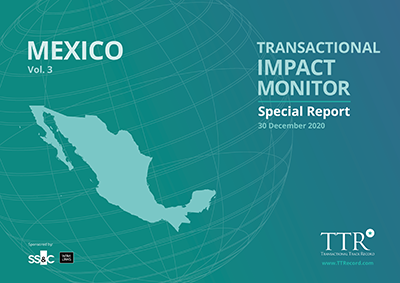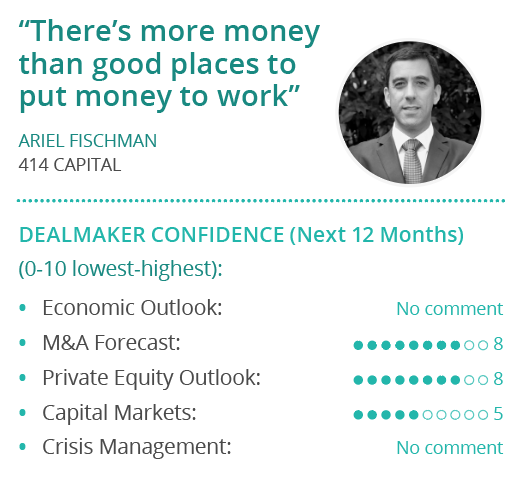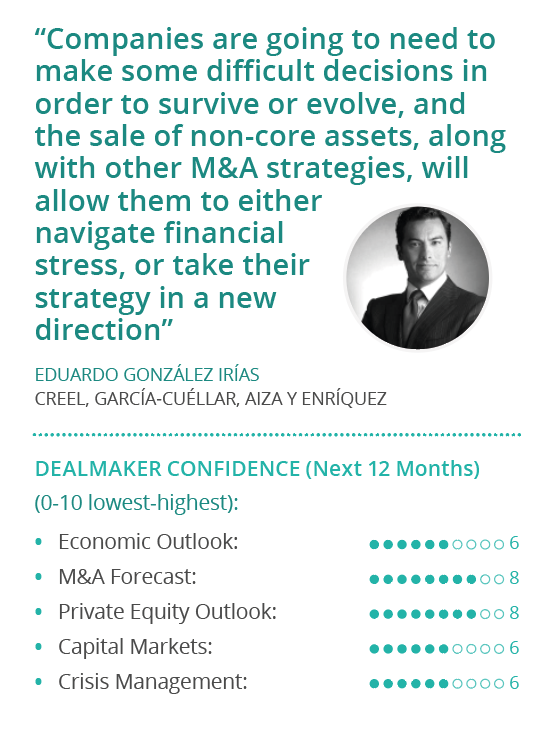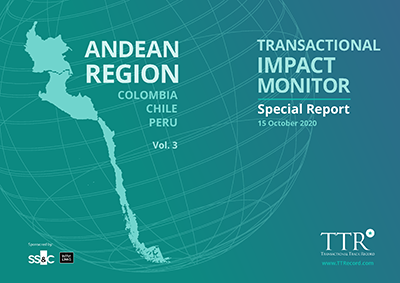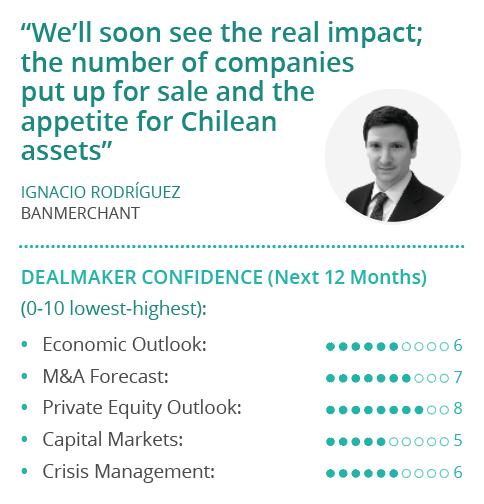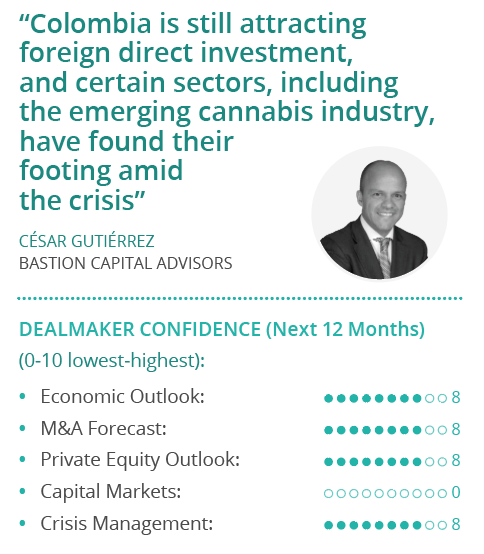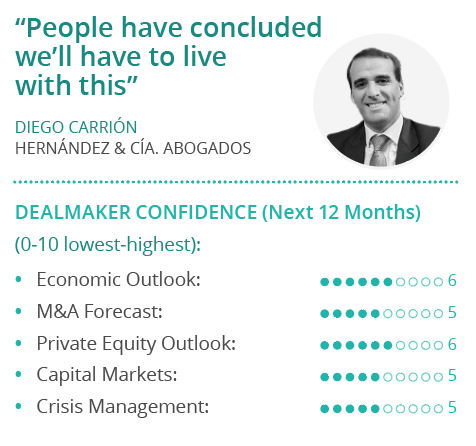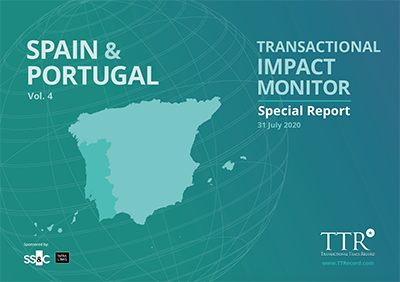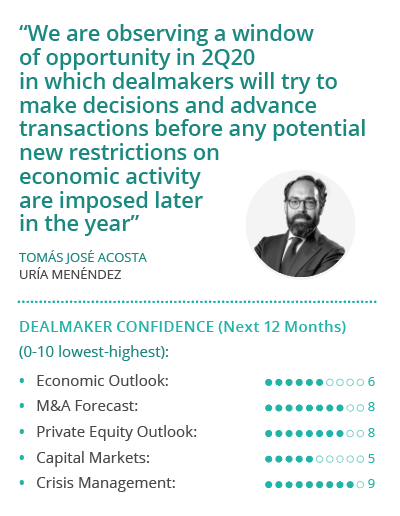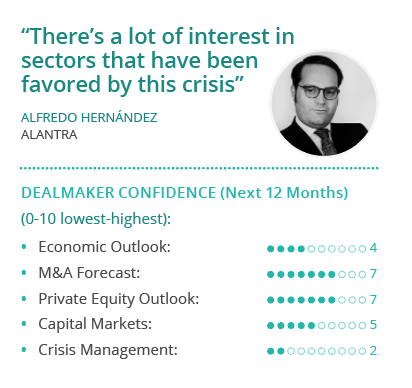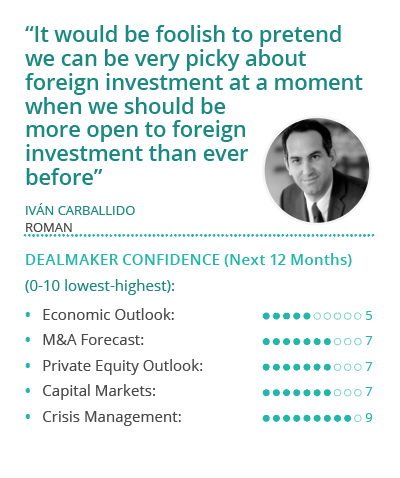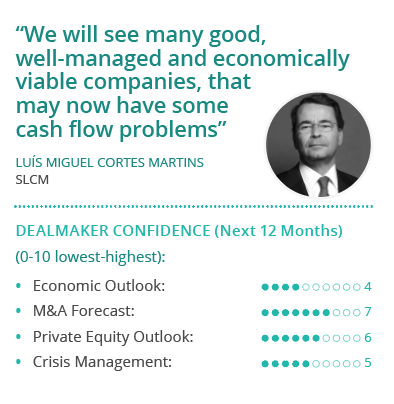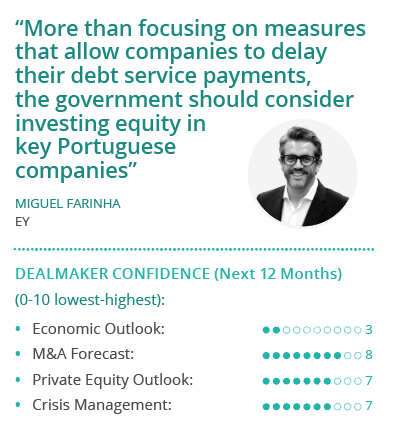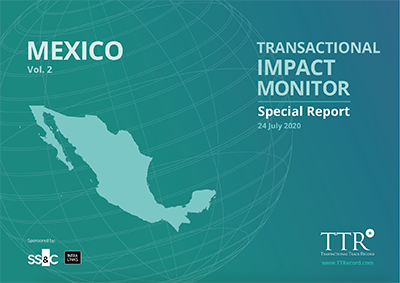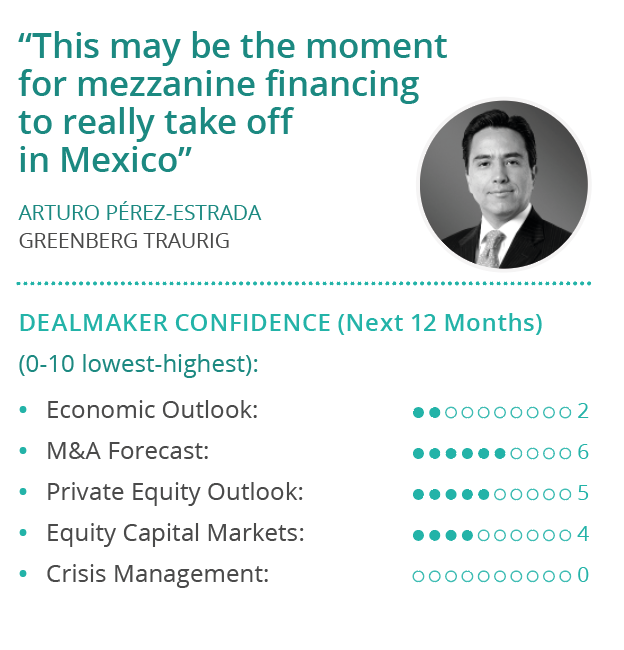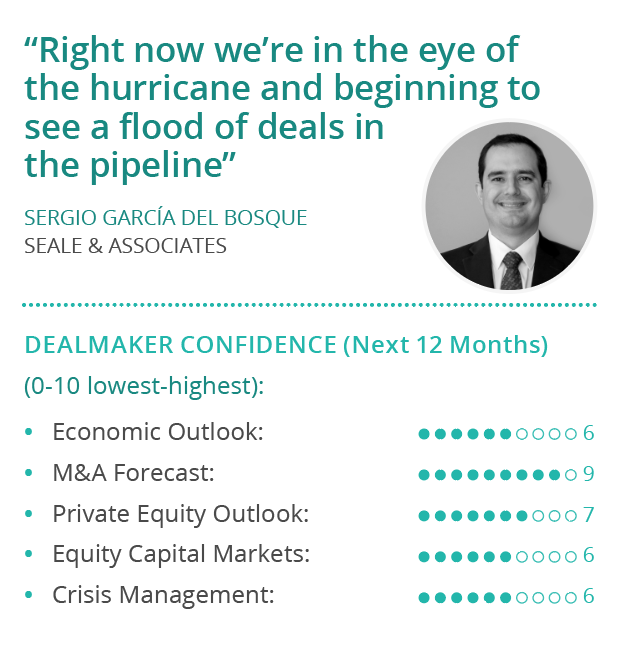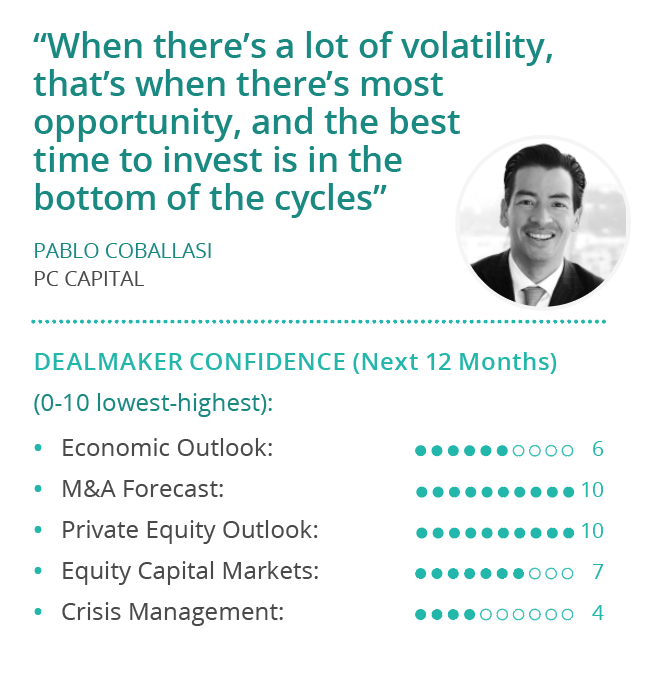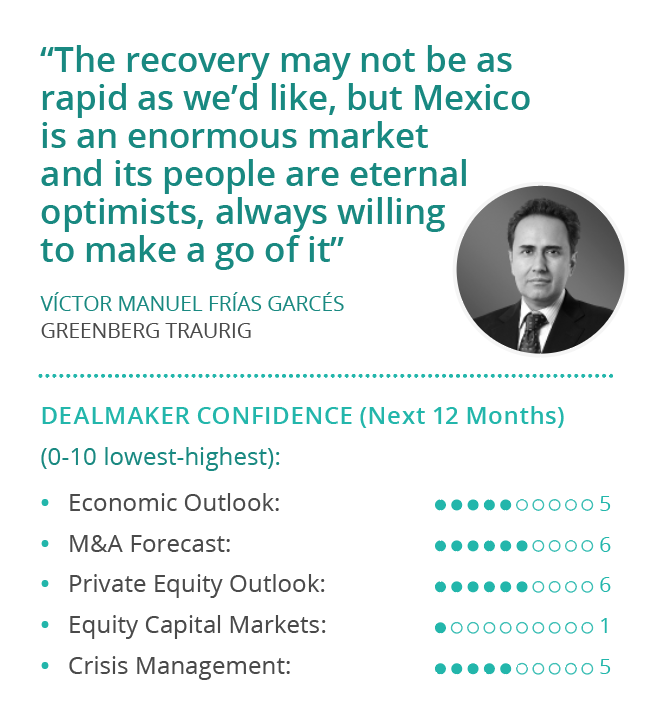Content available in English and Spanish (scroll down)
TTR DealMaker Q&A with Araoz & Rueda Partner Guillermo Bueno
Sponsored by:


Guillermo Bueno – Araoz & Rueda
Guillermo Bueno, Araoz & Rueda partner since 2021, joined our corporate department in 2013 after four years in the M&A department of Uría Menéndez.
Guillermo has experience in general commercial advice to national and foreign companies. He specializes in all types of transactions involving the sale of shares, participations, investments and divestments, as well as public offerings for acquisition, joint ventures, corporate restructuring and sale of assets, advising industrial clients and venture capital entities, both on behalf of the buyer and the seller.
He also advises regularly companies from multiple sectors (financial, health, telecommunications, internet, real estate, transport, etc.) in corporate and corporate governance matters, acting, in many cases, as secretary to the board of directors.
TTR: In 4Q20, M&A volume returned to ‘prepandemic’ levels, with a total of 639 deals. How do you interpret this upward trend compared to 2Q20 and 3Q20? What can we expect in terms of transaction volume in 2021?
G. B.: This is a very positive trend. I think during the second and third quarter of 2020 the Spanish economy was knocked out by the impact of the COVID pandemic. This put on hold many M&A transactions, which were reactivated during the last quarter.
In addition to the above corrective effect, M&A transactions have also been reactivated because currently there is a lot of liquidity in the market and interest rates are very low, making it relatively easy to obtain financing to carry out transactions.
On the other hand, the very positive number of deals in the last quarter shows that Spanish companies are very attractive to invest in. They have a lot of potential, good management teams and the capacity for growth and internationalization.
As for 2021, we will see how Brexit settles in and how the pandemic evolves. I hope that the vaccines take effect and that during the second half of the year COVID can stabilize without serious outbreaks. In any case, I believe that the M&A market will continue to grow in Spain because, as I said, we have good foundations for it. Liquidity will continue to be available and interest rates will remain low.
TTR: What is the current situation where corporate restructurings in Spain are concerned, and what are the prospects for the coming months?
G. B.: The companies are studying the impact that a prolonged effect of COVID may have on consumption habits and needs of their clients, as well as on the Spanish market. I believe that, as a result of the above, companies will have to restructure themselves in order to adapt to the changes that may occur in the market (investing more in technology or the management of employees due to the gradual increase of teleworking).
We are currently immersed in this process where many corporate restructurings are taking place in order to make their businesses even more efficient and adapt to a new reality that takes into account the long-term impact of COVID.
TTR: Foreign venture capital and private equity investment in Spanish companies fell 18% in 2020 after four years of growth. What level of VC and PE investment can be expected in 2021?
G. B.: I believe that the decrease in these investments has basically been caused by the COVID pandemic. During the first three quarters, foreign investors decided to stop investing to see how the Spanish economy would evolve.
However, I believe that this trend will be corrected and foreign investment will return to growth during 2021, especially in certain sectors such as energy, technology and health. We now have greater visibility on the COVID pandemic, investors have liquidity and interest rates are low. All this, together with the fact that the prices of Spanish companies are very reasonable, will increase foreign investment in our country.
TTR: Spain registered a 3.48% increase in the number of venture capital deals, as well as a 256.76% increase in aggregate value of these transactions. What factors brought about this growth and how will this trend impact the demand for advisory services in 1H21?
G. B.: I believe that the increase in private equity transactions is mainly due to three factors: firstly, Spanish companies are very attractive because of their capacity to expand and how well managed they are by their management teams. After the 2008 crisis, our companies became more professional and are now much more efficient.
Secondly, as mentioned before, private equity funds have a lot of liquidity to invest and interest rates are very low.
Finally, because of the COVID pandemic and the Spanish socioeconomic situation, Spanish companies are very attractively priced, which will provide great returns in the future.
TTR: The real estate sector continues to lead the M&A market in Spain: What will be the main drivers of consolidation in this sector this year?
G. B.: The real estate sectors that are expected to see the most activity in 2021 will be: (i) logistics, due to the sustained growth of internet sales; (ii) hotel and hospitality in general, due to the expected reactivation of tourism activity throughout the year and the likely adjustments that will occur with respect to previous sales prices; and (iii) within the commercial sector, retail parks, which will also benefit from the eventual increase in activity.
TTR: What will be the main challenges for Araoz & Rueda in its M&A advisory work in Spain in 2021?
G. B.: At Araoz & Rueda we are optimistic about M&A transactions in 2021.
Our main challenge is to continue to maintain our specialization and leadership in the M&A market, accompanying our clients in the most relevant transactions in the country, always remaining faithful to our style: hard work and full dedication to provide quality advice at competitive prices.
Spanish version
Guillermo Bueno – Araoz & Rueda
Guillermo Bueno, es socio de Araoz & Rueda desde 2021 y se incorporó a al departamento mercantil en 2013 tras cuatro años en el departamento de M&A de Uría Menéndez.
Guillermo tiene experiencia en el asesoramiento mercantil general a empresas nacionales y extranjeras. Está especializado en todo tipo de operaciones de compraventa de acciones, participaciones, inversiones y desinversiones, así como ofertas públicas de adquisición, joint ventures, reestructuraciones societarias y compraventa de activos, asesorando a clientes industriales y a entidades de capital riesgo, tanto desde el lado comprador como vendedor.
Asimismo, asesora recurrentemente a empresas de múltiples sectores (financiero, salud, telecomunicaciones, internet, inmobiliario, transporte, etc.) en materia societaria y de gobierno corporativo, y, en muchos casos, actúa como secretario del consejo de administración. Es Máster de Asesoría Jurídica de Empresas por el Instituto de Empresa (2009) y Licenciado en Derecho por la Universidad Pompeu Fabra (2007).
TTR: En el cuarto trimestre de 2020 el número de transacciones de M&A ha vuelto a los valores ‘prepandemia’, con un total de 639 deals. ¿Cómo interpreta esta tendencia al alza con respecto al segundo y tercer trimestre del año?, ¿qué perspectiva podríamos tener para 2021?
G. B.: Es una tendencia muy positiva. Creo que durante el segundo y tercer trimestre del 2020 la economía española estuvo noqueada por el impacto de la pandemia del COVID. Ello provocó la paralización de muchas operaciones de M&A que luego se reactivaron durante el último trimestre.
Además del efecto corrector anterior, las operaciones de M&A también se han reactivado porque actualmente existe mucha liquidez en el mercado y los tipos de interés están muy bajos, por lo que es relativamente sencillo obtener financiación para acometer las transacciones.
Por otro lado, el dato tan positivo del número de deals durante el último trimestre demuestra que las compañías españolas son muy atractivas para invertir. Tienen mucho potencial, buenos equipos directivos y capacidad de crecimiento e internacionalización.
Respecto al 2021, veremos cómo se asienta el Brexit y cómo evoluciona la pandemia. Espero que las vacunas hagan su efecto y durante el segundo semestre pueda estabilizarse el COVID sin que se produzcan rebrotes graves. En cualquier caso, creo que el mercado de M&A seguirá creciendo en España porque, como ya he dicho, tenemos buenas bases para ello. Se continuará contando con liquidez y los tipos se mantendrán bajos.
TTR: En cuanto a reestructuraciones societarias, ¿cuál es la situación actual y cuáles son las perspectivas para los próximos meses en España?
G. B.: Las compañías están estudiando el impacto que puede tener un efecto prolongado del COVID en los hábitos de consumo y necesidades de sus clientes, así como en el tejido empresarial español. Creo que, como resultado de lo anterior, las compañías deberán reestructurarse para dar respuesta a los cambios que puedan producirse en el mercado (invertir más en tecnología o la gestión de sus trabajadores por la incorporación paulatina del teletrabajo).
Actualmente estamos inmersos en ese proceso donde se están produciendo muchas reestructuraciones societarias para hacer más eficientes aún sus negocios y adaptarse a una nueva realidad que tenga en cuenta el impacto del COVID a largo plazo.
TTR: La inversión de fondos de capital riesgo y capital privado extranjeros en empresas españolas ha registrado una disminución del 18%, luego de cuatro años de crecimiento, ¿Que tendencia podría prevalecer en 2021 en estos segmentos?
G. B.: Creo que la disminución de estas inversiones ha sido provocada básicamente por la pandemia del COVID. Durante los tres primeros trimestres, los inversores extranjeros decidieron paralizar sus inversiones para ver cómo evolucionaba la economía española.
No obstante, creo que esta tendencia se corregirá y la inversión extranjera volverá a crecer durante el año 2021, sobre todo en determinados sectores como la energía, la tecnología y la salud. Actualmente tenemos mayor visibilidad sobre la pandemia del COVID, los inversores cuentan con liquidez y los tipos de interés están bajos. Todo ello, sumado a que los precios de las compañías españolas son muy razonables, incrementará la inversión extranjera en nuestro país.
TTR: España ha registrado un aumento del 3,48% en el número de operaciones de capital de riesgo, así como un aumento del 256,76% en el capital movilizado ¿Qué factores ocasionaron este crecimiento y cómo podría influir esta tendencia en las asesorías para el próximo semestre?
G. B.: Creo que el aumento de las operaciones de capital riesgo se explica principalmente por tres factores: en primer lugar, las empresas españolas son muy atractivas por su capacidad de expansión y lo bien gestionadas que están por sus equipos directivos. Tras las crisis del 2008, nuestras empresas se profesionalizaron y ahora son mucho más eficientes.
En segundo lugar, como ya he mencionado, los fondos de capital riesgo cuentan con mucha liquidez para invertir y los tipos de interés están muy bajos.
Por último, con motivo de la pandemia del COVID y la situación socioeconómica española, las compañías españolas tienen unos precios muy atractivos, lo que proporcionará grandes retornos en el futuro.
TTR: El sector inmobiliario continúa siendo el sector líder del mercado M&A en España: ¿Cuáles serán los principales motores de consolidación en este sector este año?
G. B.: Los sectores inmobiliarios en los que se prevé más actividad durante el 2021 serán: (i) el logístico, por el crecimiento sostenido de las ventas por internet; (ii) el hotelero y de hospitality en general, por la esperada reactivación de la actividad turística a lo largo del año y los probables ajustes que se producirán respecto de los precios previos de venta; y (iii) dentro del sector comercial, los parques de medianas, que también se verán beneficiados por el eventual aumento de la actividad.
TTR: Para Araoz & Rueda, ¿Cuáles podrían ser los principales retos en operaciones de M&A en España durante 2021?
G. B.: En Araoz & Rueda somos optimistas respecto a las operaciones de M&A durante el 2021.
Nuestro principal reto es seguir manteniendo nuestra especialización y liderazgo en el mercado de M&A, acompañando a nuestros clientes en las operaciones más relevantes del país, siendo fieles siempre a nuestro estilo: trabajo duro y dedicación plena para brindar un asesoramiento de calidad a unos precios competitivos.

